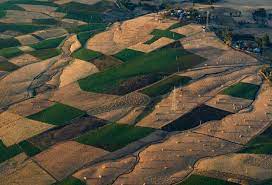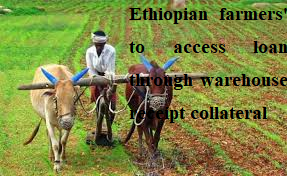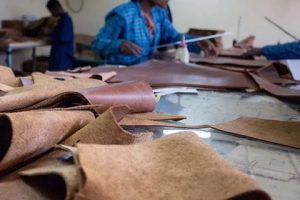
Ethiopian coffee has a long-standing reputation for its exceptional quality and unique aroma profiles. The Cup of Excellence (COE) is an internationally recognized competition that celebrates the best coffees from various producing countries, including Ethiopia.
Ethiopia is often regarded as the birthplace of coffee, and it has a rich coffee heritage. The country’s diverse microclimates, high altitudes, and unique coffee varieties contribute to the exceptional cup profiles found in Ethiopian coffees. The Cup of Excellence provides an opportunity for Ethiopian coffee producers to showcase their top-quality beans and gain recognition on a global scale.
In previous Cup of Excellence competitions, Ethiopian coffees have consistently performed exceptionally well. The competition follows a rigorous evaluation process, including blind cupping by a panel of expert judges who assess the coffees based on various characteristics such as aroma, flavor, acidity, and aftertaste. The coffees that score the highest are awarded the prestigious Cup of Excellence title.
Ethiopian coffees have often secured top positions in the Cup of Excellence, demonstrating the country’s reputation for producing outstanding specialty coffees. These coffees are known for their vibrant and complex flavor profiles, which can include floral, fruity, and wine-like notes. Ethiopian coffee varieties such as Yirgacheffe, Sidamo, and Harrar have gained significant recognition and have been featured prominently in the Cup of Excellence competitions.
Additionally, the Cup of Excellence has helped promote transparency and direct trade relationships in the Ethiopian coffee industry. It provides a platform for farmers and producers to connect with coffee buyers and enthusiasts worldwide, fostering relationships that support sustainable practices and fair prices for the farmers.
It’s important to note that coffee quality and performance can vary from year to year due to factors such as weather conditions, farming practices, and processing methods. The Ethiopian Coffee and Tea Authority (ECTA) said it has set meticulous strategies to penetrate the global coffee market and put the country among the commodity’s leading suppliers in the current fiscal year.
ECTA Deputy Director, Shafi Umer, recently told the Ethiopia Press Agency (EPA) that the authority has set three strategies to penetrate the global coffee market. Accordingly, facilitating joint ventures between local and foreign investors in the coffee business, exporting roasted coffee to African countries and exploring new market destinations are measures identified by the authority.
According to him, the amount of revenue Ethiopia expected to earn from export of coffee declined last year because of price decline in the global market. To avert the decline and sell more coffee, the authority has set a minimum price and forbidden the export of the commodity below the set price.
“We identified coffee varieties based on their quality and sold them into the ISO market and we are working to sell specialty coffee at a better price. In the year 2023, 53 percent of specialty coffee was sold in this way,” Shafi said.
Strengthening Ethiopia’s share in the existing market and exploring new destinations as well as exporting value added commodities are also areas the authority has given due consideration. He said; “We believe our strategies would help the country to generate better income and keep competitive in the global coffee market.”
Shafi further stated that the authority is also doing its level best to increase the country’s tea production and enhance forex earnings from the commodity. Apart from technical and professional supports to tea growers, the authority has carried out various activities to enhance the former’s presence in the global market.
Encouraging local investors’ involvement in the tea production is also the area that has attained significant attention. At the same time, it was learned that Ethiopia is going to host the 20th African Fine Coffees Conference and Exhibition from 5-9 February, 2024 under the theme “Specialty Coffee at Origin.”
Certainly! The Ethiopian coffee industry has made significant efforts to upgrade its coffee production, increase export volumes, promote specialty coffee, and establish an auction market.
Ethiopia is renowned for its diverse coffee varieties and rich coffee heritage. To upgrade coffee production, the country has focused on various aspects, including Ethiopian coffee farmers receive training on best agricultural practices, such as sustainable cultivation techniques, proper harvesting, and post-harvest processing methods. This helps improve the quality of coffee beans.
The Ethiopian Coffee and Tea Development and Marketing Authority, along with other organizations, invest in research and development to enhance coffee quality, disease resistance, and productivity. This ensures the availability of high-quality coffee beans for export.
Ethiopian coffee exporters have been exploring and diversifying their export destinations. This allows them to tap into new markets and expand their reach beyond traditional buyers.
The Ethiopian government, in collaboration with coffee industry stakeholders, participates in international trade fairs, exhibitions, and business forums to promote Ethiopian coffee and attract potential buyers. This helps boost export volumes.
Investments have been made in improving transportation, logistics, and storage facilities. This ensures efficient coffee supply chain management, reducing post-harvest losses and enabling higher export volumes.
Ethiopia is known for producing exceptional specialty coffees, which are highly sought after by coffee enthusiasts around the world. Ethiopian Tea and Coffee Authority stated that it has planned to secure about 1.5 billion USD by exporting coffee during the year of 2023/24.
Briefing journalists recently, Shafi stated that the authority is exerting utmost effort to boost the coffee sector product by putting two strategies: increasing coffee production and productivity to supply quality coffee in the market and expanding coffee market export destinations in the globe.
Certification and Grading Ethiopian coffee undergoes rigorous processes and grading systems to ensure quality standards. Specialty coffee beans are identified, categorized, and marketed accordingly, highlighting their unique characteristics.
Ethiopian coffee producers and exporters have developed direct trade relationships with international buyers, including specialty coffee roasters and cafes. This fosters transparency, fair pricing, and sustainable partnerships, creating a positive image for Ethiopian specialty coffee.
Ethiopia has established auction markets to facilitate transparent coffee trading and price discovery. Key features of the auction market include Ethiopian Commodity Exchange (ECX) that serves as a platform for coffee trading, facilitating auctions where coffee is traded based on quality, region, and other parameters. This promotes fair competition and transparent pricing, benefitting both buyers and sellers.
The auction market ensures traceability of coffee lots, enabling buyers to identify the origin and quality of the beans they purchase. Certification systems are in place to maintain integrity and authenticity.
The auction market provides domestic and international buyers with access to a wide range of Ethiopian coffee varieties. This encourages market participation and contributes to the growth of the coffee industry.
In addition to the initiatives mentioned above, Ethiopia has also made significant progress in the production of organic coffee, which is gaining recognition and popularity globally. Organic coffee is cultivated without the use of synthetic fertilizers, pesticides, or genetically modified organisms. Instead, farmers rely on organic farming methods that promote biodiversity, soil health, and environmental sustainability.
Ethiopia’s diverse agro-ecology and traditional farming practices make it well-suited for organic coffee production. Many coffee farms in Ethiopia have been practicing organic farming methods for generations, maintaining the natural balance of ecosystems and preserving the unique flavors of Ethiopian coffee.
Ethiopian organic coffee has gained a reputation for its exceptional cup quality and distinct flavor profiles. It embodies the true essence of Ethiopian coffee, with its floral aromas, fruity notes, and vibrant acidity. The combination of organic cultivation practices, high-altitude growing conditions, and unique coffee varieties contributes to the exceptional taste and aroma of Ethiopian organic coffee.
The global demand for organic coffee has been steadily rising, driven by increasing consumer awareness of sustainability and environmental issues. As a result, Ethiopian coffee producers have recognized the value of organic certification as a means to access premium markets and cater to the growing demand for organic products.
Various organizations and certification bodies, such as the Organic Crop Improvement Association (OCIA) and the United States Department of Agriculture (USDA), provide organic certification for Ethiopian coffee. This certification ensures that the entire production process, from cultivation to processing and packaging, meets strict organic standards.
Organic coffee from Ethiopia has not only performed well in the Cup of Excellence but has also gained recognition in other international competitions and specialty coffee events. Its unique flavor profiles and commitment to sustainability have captivated the palates of coffee connoisseurs worldwide.
As the Ethiopian coffee industry continues to evolve and adapt to changing market dynamics, it is poised to maintain its position as a prominent player in the specialty coffee sector. With ongoing support from the government, dedicated farmers, and passionate industry stakeholders, Ethiopian coffee will continue to captivate coffee enthusiasts and connoisseurs with its exceptional quality and rich cultural heritage.
BY LAKACHEW ATINAFU
The Ethiopian Herald September 21/2023





